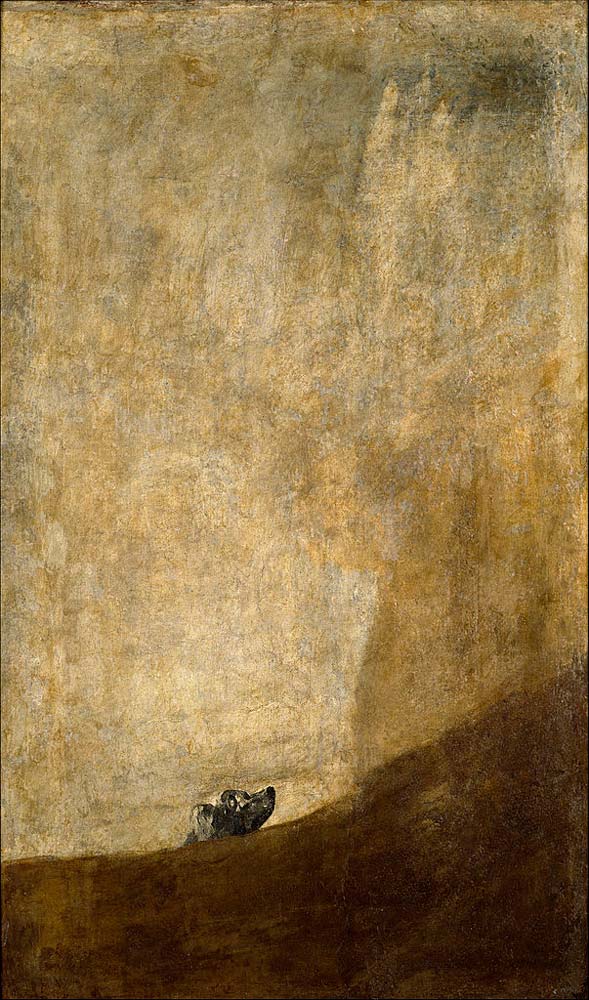| The Dog | |
|---|---|
 |
|
| Artist | Francisco Goya |
| Year | circa 1819–1823 |
| Medium | Oil mural on plaster transferred to canvas |
| Location | Museo del Prado, Madrid |
| Dimensions | 51.75 in × 31.25 in |
| 131.5 cm × 79.3 cm | |
| Famous Paintings by Goya | |
| Saturn Devouring His Son | |
| The Third of May 1808 | |
| La Maja Desnuda | |
| The Sleep of Reason Produces Monsters | |
| Witches’ Sabbath | |
| La Maja Vestida | |
| La Cometa | |
| The Forge | |
| The Dog | |
| Complete Works |
The Dog is an oil on plaster painting by Francisco Goya. He completed the 52 inch by 31 inch mural in his house outside of Madrid between 1819 and 1823. It is considered one of the world”s first Symbolist paintings. The painting was eventually transferred to canvas in 1878 and now hangs in the Museo Nacional del Prado.
Description
In the foreground, a long slope of dark ochre begins at the left side of the canvas and increases in size as it flows to the right. Slightly left of center, a dark gray dog”s head with ears flopped back, nose facing to the right, looks up the slope. The background is a lighter wash of paler ochre. A dark splotch in the upper right corner is usually considered to be damage or an artifact from an earlier painting that was painted over while the work was still on its original plaster wall.
History
The Dog is one of a series of paintings Goya painted on the walls of his home. They were later named his Black Paintings because of their dark and ambiguous nature. At the same time the ailing and elderly Goya, upset over the ongoing civil wars in Spain, was finishing his Disasters of War series. The Black Paintings are thought to be intensely personal works that were never meant for public display.
The Dog and the other Black Paintings seem to be highly metaphorical and fantastic, with layers of hidden meanings in each piece. Goya did not reveal the meanings inherent in these private works and in fact didn”t even name them. Many art critics and philosophers have since tried to puzzle out the meaning of The Dog. The provenance of the Black Paintings is sometimes disputed, but whether they were painted by Goya or by his son working in Goya”s style, the Black Paintings and especially The Dog continue to captivate the viewer.